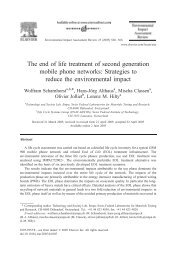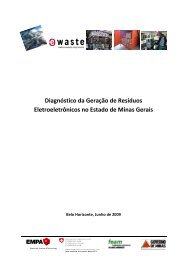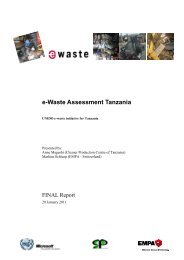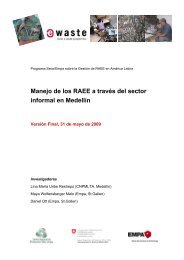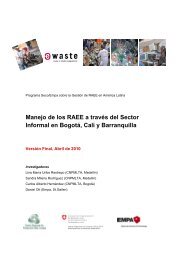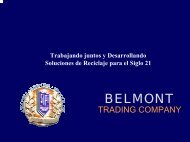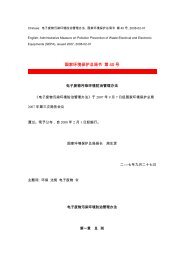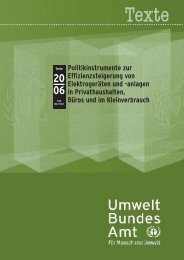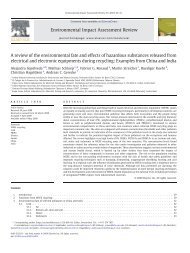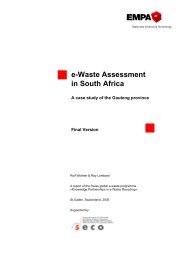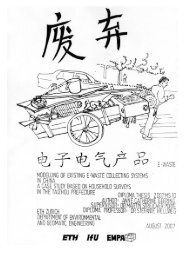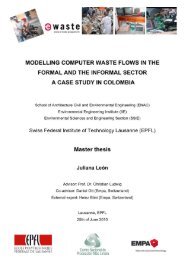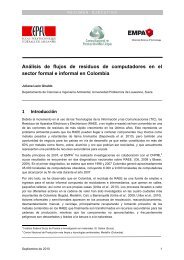The Entrepreneur's Guide to Computer Recycling - e-Waste. This ...
The Entrepreneur's Guide to Computer Recycling - e-Waste. This ...
The Entrepreneur's Guide to Computer Recycling - e-Waste. This ...
You also want an ePaper? Increase the reach of your titles
YUMPU automatically turns print PDFs into web optimized ePapers that Google loves.
Volume 1: Basics for starting up a computer recycling businessc h a p t e r 3SOCIAL AND ENVIRONMENTALCHALLENGESGenerally speaking, equipment dismantling and refurbishment activities,pose little or no threat <strong>to</strong> human health or the environment when they arecarried out properly, taking in<strong>to</strong> account all human health and environmentalrequirements. PCs and other ICT equipment do contain minimalamounts of potentially harmful substances (e.g. lead, cadmium, beryllium),but they are in solid, non-dispersible forms, and thus pose no concern forhuman exposure or environmental release in ordinary use or handling ofwhole equipment. Activities relating <strong>to</strong> handling, including manual disassemblyand most repair, refurbishment or upgrade activity can thus oftenbe safely undertaken by workers in developing countries, provided theyare carefully moni<strong>to</strong>red and safeguards are in place. However, currently inmost developing countries such activities are carried out by the informalsec<strong>to</strong>r without regard <strong>to</strong> safety and environmental concerns. <strong>The</strong>refore,there is an urgent need <strong>to</strong> improve existing conditions before imports ofWEEE <strong>to</strong> these countries are initiated.AINTRODUCTION | SOCIAL AND ENVIRONMENTAL CHALLENGESFormal versus informal recycling practicesCertain recycling processes, including shredding, grinding, burning andmelting of components, may release harmful fumes or dust that, whenemitted or leached in<strong>to</strong> the soil, can have harmful health and environmentalimpacts. In many developing countries, an informal network of wasteprocessors employs techniques such as open burning, without adequatesafety pro<strong>to</strong>cols necessary <strong>to</strong> protect workers’ health. Moreover, recyclingis often done at or near waste dumps which are not equipped <strong>to</strong> preventharmful leaching in<strong>to</strong> soil and groundwater. By definition, the “informal”network of waste processors is not regulated, and so it has proven <strong>to</strong> bedifficult for many countries <strong>to</strong> moni<strong>to</strong>r harmful practices and implementcontrols <strong>to</strong> protect workers’ health and the environment.9



